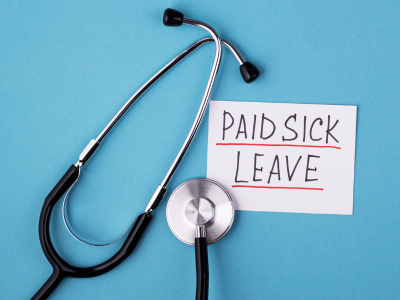Effective July 1, 2024, Chicago employers will need to comply with the city of Chicago’s paid leave and paid sick and safe leave ordinance. The ordinance requires Chicago employers and employers with Chicago-based remote workers to provide up to 40 hours per year of paid leave and 40 hours per year of paid sick leave to eligible employees. It also allows for carryover of leave from year to year and contains certain posting and recordkeeping requirements.
Details
To aid employers in complying with the Chicago ordinance, the chart below sets forth some its key features, though it includes many nuances and other provisions not detailed in this summary:
Chicago ordinance Effective date July 1, 2024. Coverage Employees working at least 80 hours within any 120-day period while physically present within the city of Chicago. Accrual One hour of paid leave and one hour of paid sick leave for every 35 hours worked, up to 40 hours each in a 12-month period. Use Paid leave for any reason and paid sick leave for certain injuries, illnesses, medical appointments, and other stated reasons. Frontloading permitted Yes. Carryover of unused paid leave and paid sick leave Yes, depending on the type of leave and whether leave is accrued or frontloaded.If leave is accrued, employees may carry over up to 16 hours of paid leave and up to 80 hours of paid sick leave.If leave is frontloaded, employees do not carry over paid leave but do still carry over up to 80 hours of paid sick leave. Posting and recordkeeping obligations Employers must post a city-created notice of rights through their usual methods of communication for such notices.Employers must provide a notification to employees of the availability and use of paid leave and paid sick leave. Reasonable systems for notification include listing amounts on paystubs or payroll statements or developing an online system where employees can access such information.Employers also must keep accrual and use records for not less than five years. Payout at time of termination Paid leave may or may not need to be paid out, depending on the size of the employer.Paid sick leave does not have to be paid out upon termination of employment. Private right of action Yes. Other notable features Unique obligations for unlimited paid time off (PTO) policies.
What Employers Should Do Now
In light of the Chicago ordinance, employers with employees located in Chicago should take the following steps:
Revise policies as necessary, post required notices, and ensure recordkeeping systems in place. After analyzing the applicable requirements, you should revise your policies as necessary. You should also, of course, post any required notices and ensure recordkeeping systems are in place.
Train personnel. Train HR staff and other personnel on the new obligations. Besides the basics noted above, the Chicago ordinance contains various other obligations, and the precise obligations may also depend on how you choose to comply with the law (e.g., via accrual or frontloading). It’s important that HR personnel understand the applicable requirements both to minimize the risk of litigation and to address questions that employees may have.
Fox Swibel will continue to follow developments closely regarding the Chicago ordinance and can be reached at any time. Please contact Steve Brenneman, Kelly Smith Haley, David Levine, or the Fox Swibel attorney with whom you regularly work to discuss these issues.
Kelly Smith Haley is an attorney with Fox, Swibel, Levin & Carroll, LLP, in Chicago and can be reached at ksmithhaley@foxswibel.com.

